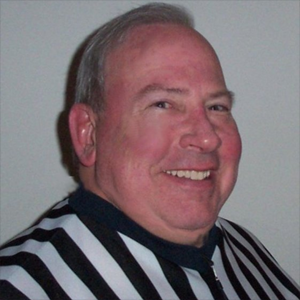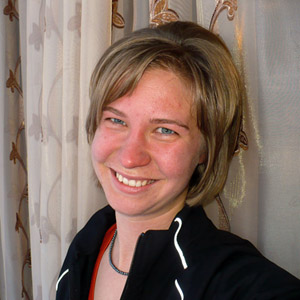
Rndballref
20 Years Experience
Chicago, IL
Male, 60
For twenty years I officiated high school, AAU and park district basketball games, retiring recently. For a few officiating is the focus of their occupation, while for most working as an umpire or basketball referee is an avocation. I started ref'ing to earn beer money during college, but it became a great way to stay connected to the best sports game in the universe. As a spinoff, I wrote a sports-thriller novel loosely based on my referee experiences titled, Advantage Disadvantage
The rules states that a player cannot be in the paint for 3 or more seconds, so technically when you get to three it is a violation. HOWEVER, as I have stated before I rarely called 3 seconds. 1) I tried to talk players out, and 2) it is the perfect advantage disadvantage call. That is I only called it when it made a difference tp the play - for example a player getting an offensive rebound after camping out.
No. The correct protocol when a player fouls out is this: the scorer normally informs the ref that the player assessed with the last foul has fouled out. The ref lets the coach know that the player has fouled out and he has 30 seconds to send in a substitute. Once the fouled out player leaves the court and the substitute is beckoned in, then the free throws can start. By the way, if there are other subs at the time the player is being replaced, then all of them should be beckoned in. Normally you would wait until there is only one free throw left (or a one and one) before sending subs in.
To have a backcourt violation a team must first achieve possession in their front court. There is no team possession on a throw in.
So, in your scenario Players B1 and A2 touch the ball, but neither have achieved possession. Therefore, no backcourt violation when A2 retrieves the ball in his backcourt.
If the player had two hands on the ball and pushed it to the ground it is double dribble. If the play had one hand on top of the ball and pushed it to the ground it would be a dribble. If he then picked the ball up, he could not dribble again.
Sommelier
 Do you occasionally get a little turned off by wine snobbery?
Do you occasionally get a little turned off by wine snobbery?
Professional Blogger
 How long did it take you before you could quit your day-job?
How long did it take you before you could quit your day-job?
Peace Corps Volunteer
 Are Peace Corps volunteers just a bunch of "hippie freaks?"
Are Peace Corps volunteers just a bunch of "hippie freaks?"
I don't think there is a perscribed rotation as to which referee should put the ball in play. As a practice, after one of my partners called a technical foul I would have him be the official to put the ball in play, thereby putting him opposite of the table and benches.
I think your question is after a technical, is the throw in official the new trail? And the answer is yes. On any sideline throw in, the lead should come to the trail half of the court, making the throw in official the trail.
There is no provision in NFHS rules for a running clock. Club or AAU traveling rules may allow for a running clock.
I did not see the play, but you are quite right that if a player is out pf bounds (any part of his body is touching the line or beyond the line) and he touches the ball, it should be whistled out of bounds and a throw in awarded to the other team.
-OR-
 Login with Facebook
Login with Facebook (max 20 characters - letters, numbers, and underscores only. Note that your username is private, and you have the option to choose an alias when asking questions or hosting a Q&A.)
(A valid e-mail address is required. Your e-mail will not be shared with anyone.)
(min 5 characters)
By checking this box, you acknowledge that you have read and agree to Jobstr.com’s Terms and Privacy Policy.
-OR-
 Register with Facebook
Register with Facebook(Don't worry: you'll be able to choose an alias when asking questions or hosting a Q&A.)